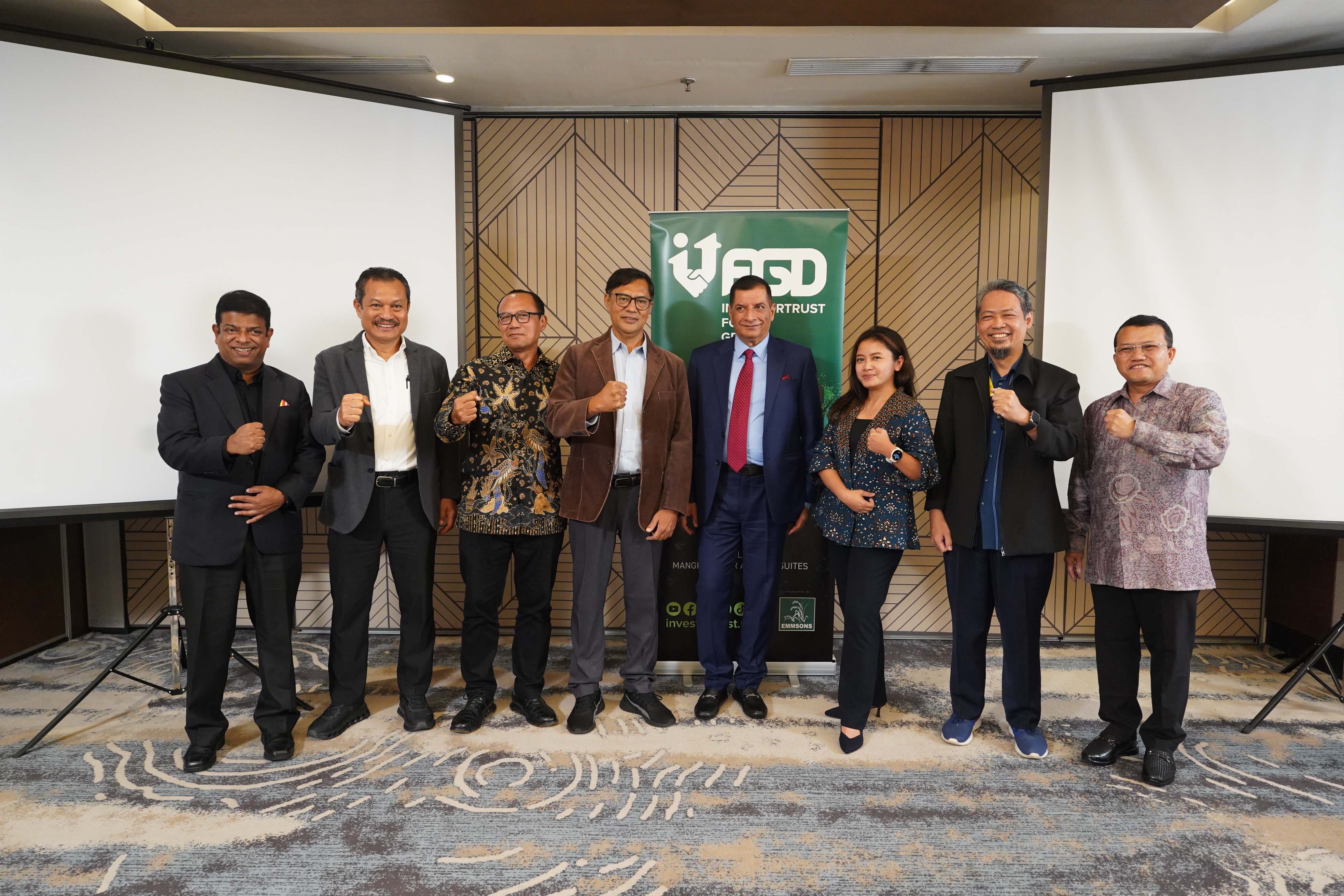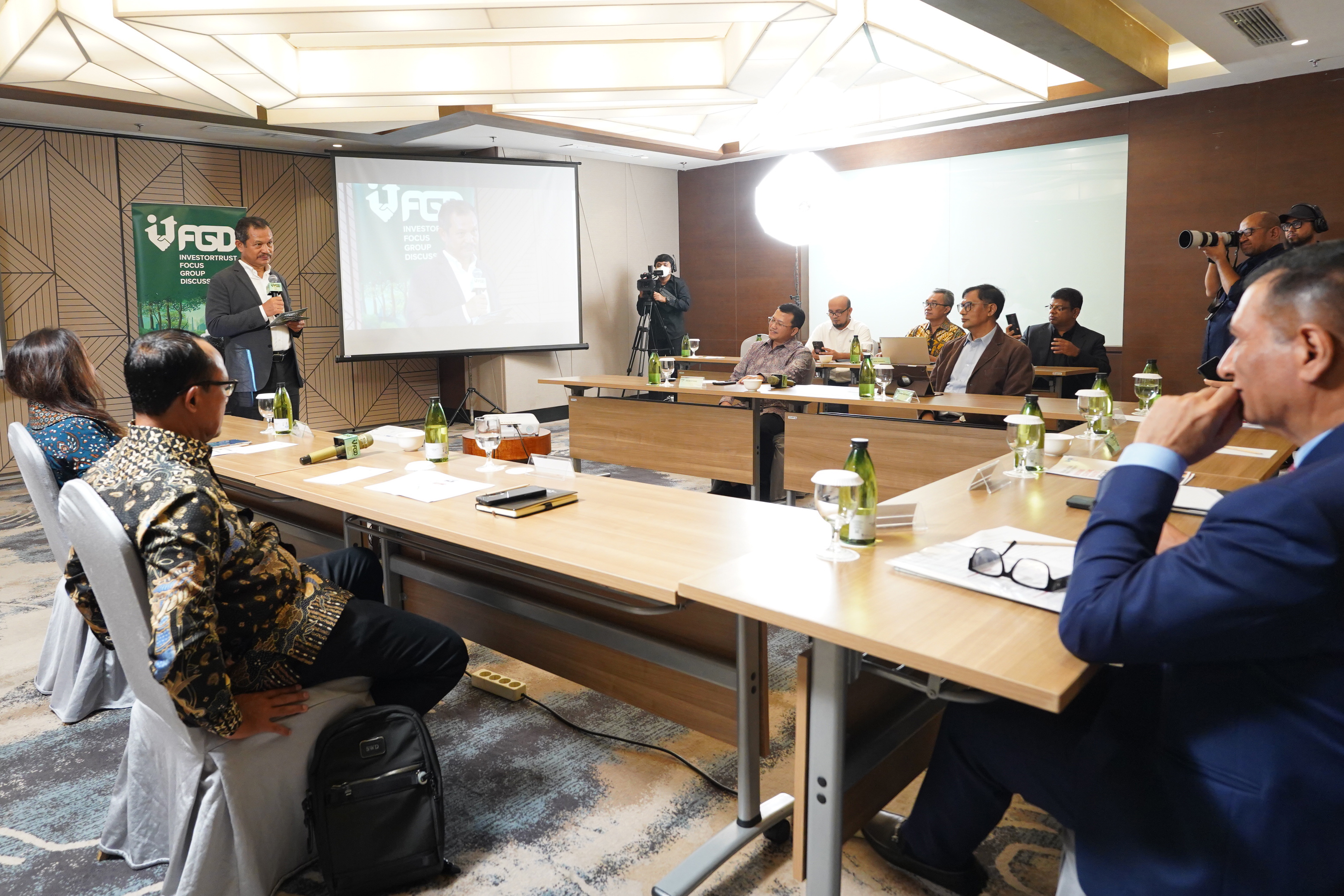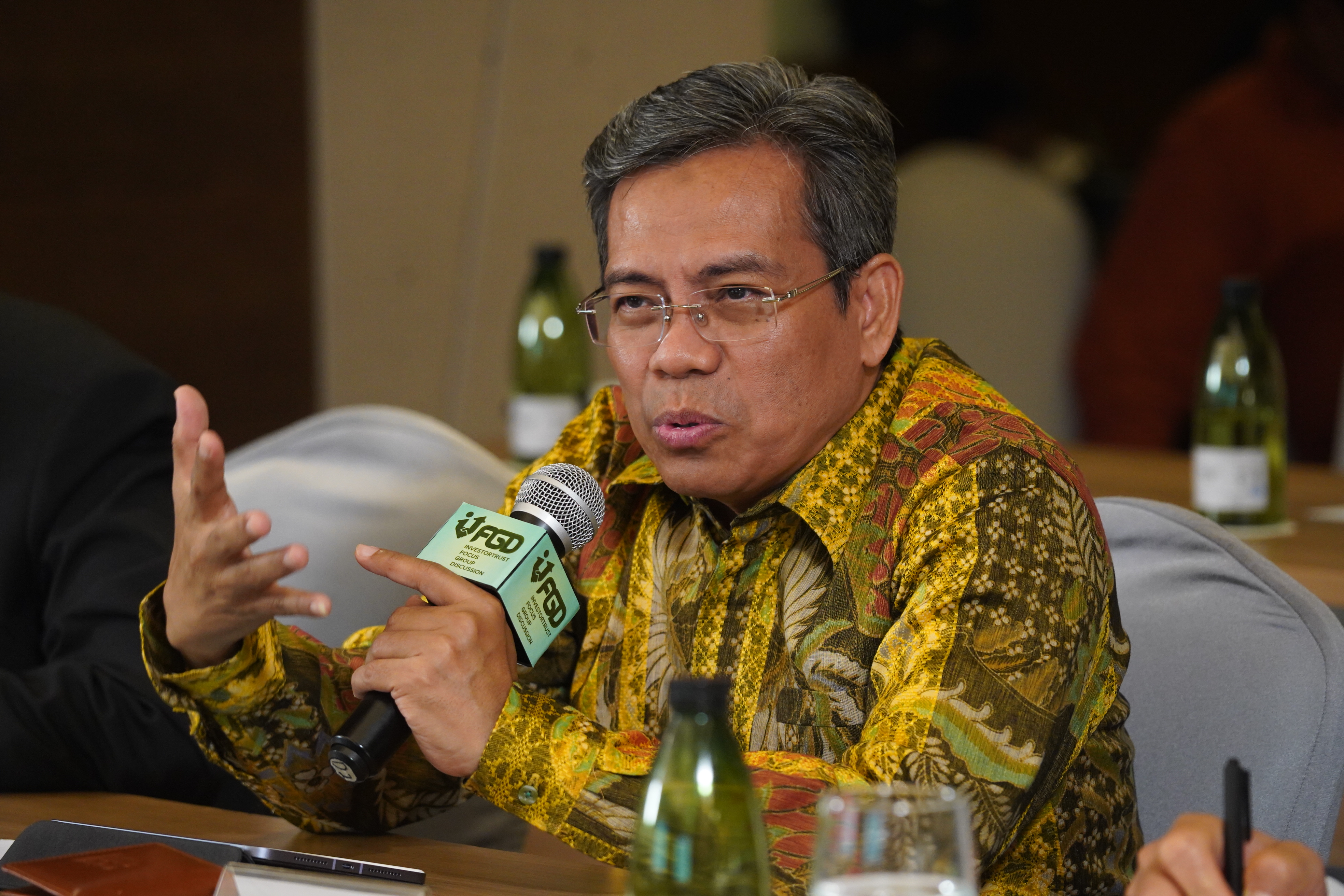Emmsons Group Eyes Coal Gasification to Produce Cleaner Industrial Fuel
Key Takeaways
|
JAKARTA, Investortrust.id – Emmsons Group, a global commodity trading firm headquartered in India, plans to transition into coal gasification as part of its strategy to produce cleaner industrial fuel and contribute to Indonesia's energy transformation.
Speaking at the Investortrust Focus Group Discussion (FGD) on “Coal and National Energy Sovereignty: Bridging Economic Reality and Climate Commitments” in Jakarta on Wednesday, Chairman Anil Kumar Monga outlined the company's vision for a more sustainable industrial energy supply.
Coal gasification, a process that converts coal into gas for use as fuel or chemical feedstock, is seen as a step forward in reducing environmental impacts. Monga detailed the technology's components, including reactors, gas coolers, tar precipitators, scrubbers, steam separators, blowers, and tar ponds, during his presentation.
“We aim to pursue coal gasification to create cleaner fuel for industrial use,” Monga said. “The next phase is building a urea plant to support local agriculture and reduce dependence on imports.”
“We are not investing here merely to evacuate coal. Our objective is to create added value—through coal gasification, by developing a power project at the mine mouth, and through other strategic initiatives,” said Anil.

Photo: Investortrust/Mohammad Defrizal
As a global investor, Monga emphasized that responsible investment requires long-term thinking. “Whether it’s costly or not, certain steps are essential to the work. Several countries are moving to shut down coal-fired power plants—you must have viable alternatives,” he said.
Coal gasification, he argued, presents the best path forward. “Gasification is the right project. While it may be expensive upfront, the cost will ultimately be offset by the value of the end product,” Monga explained.
He also stressed the importance of policy clarity and national stability in determining investment destinations. “Wherever we plan to invest, we need to assess whether our investment is secure, what kind of country we are investing in, how stable it is, and whether there is a clear roadmap for that sector. Long-term policy is essential,” he concluded.

Photo: Investortrust/Mohammad Defrizal
India-Based Firm with Global Reach and Indonesian Focus
Emmsons Group operates worldwide in agricultural products, soft commodities, raw materials, and fertilizers, while also maintaining interests in coal mining. Monga noted that Indonesia has always been central to the company’s strategy and will remain so in the future.
“Today, the energy sector is the earning way,” Monga said, referring to the growing economic potential of the global energy transition. “We are all facing the challenge of balancing energy security, economic growth, and climate responsibility.”
Commitment to Inclusive Growth and Local Impact
Beyond its industrial goals, Emmsons Group is planning a corporate social responsibility (CSR) program focused on communities surrounding its project sites.
“We are planning robust CSR programs for communities around our project sites,” Monga said.
Monga said the initiative will prioritize family welfare, education, sports, vocational training, scholarships for youth, and local infrastructure improvements.
“True progress is shared progress,” Monga said. “At Emmsons, we stand for friendship, purpose, and long-term trust. With the right wisdom, support, and vision, we believe Indonesia can become a model for responsible and inclusive energy development.”

Failure to Transition Risks Market Rejection
The government recognizes transitioning from coal to cleaner energy is no longer optional, but a mandatory step toward sustainable development and global market relevance.
“Why is it a necessity? Because whether from the perspective of academics, businesses, banks, or the market—across generations—there is a unified demand for environmentally friendly products,” Deputy for Investment Promotion at the Ministry of Investment and Downstreaming/Investment Coordinating Board (BKPM), Nurul Ichwan, said during the event.
According to Nurul, companies that resist this transition risk falling out of step with evolving global norms. Ignoring this shift would alienate not just consumers, but the entire value chain from production to distribution.
“If we don’t align with what the market wants, it’s like digging our own grave,” he said.

